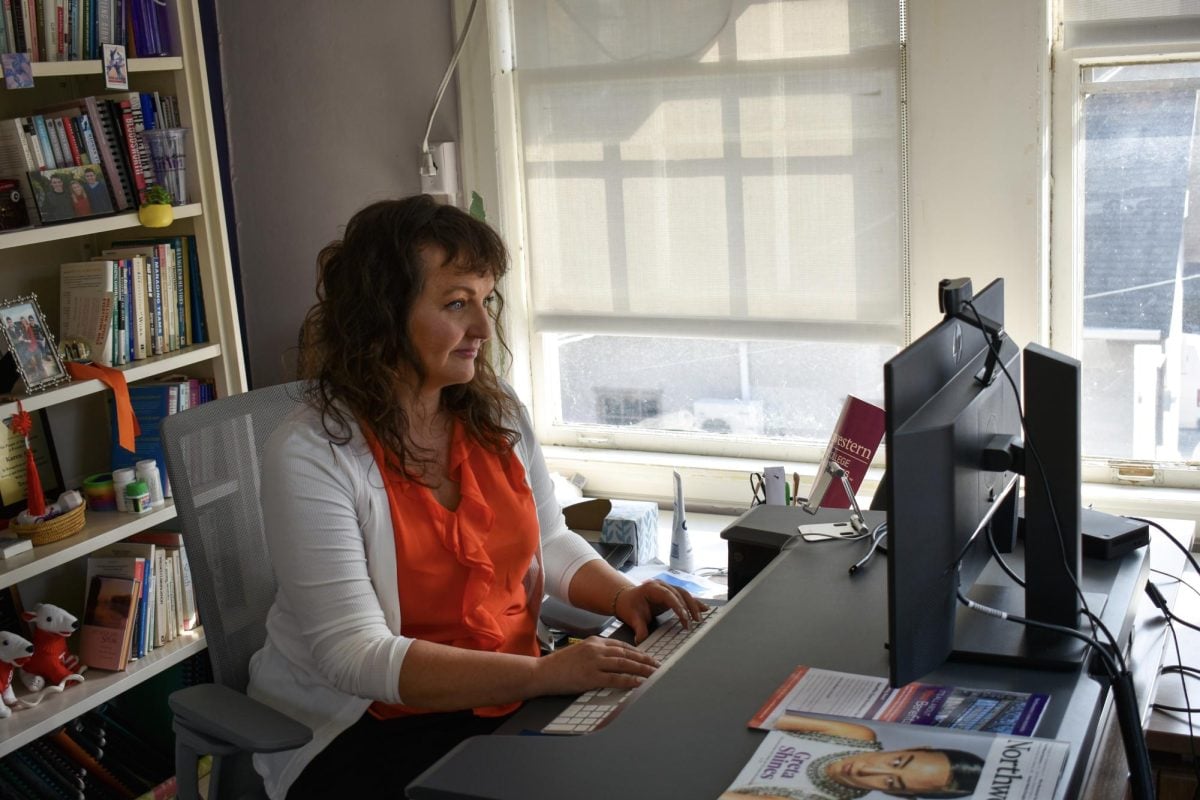Since the launch of ChatGPT in November 2022, universities nationwide have been reckoning with the impact that generative artificial intelligence may have in reshaping academia. Northwestern professors are at the forefront of research investigating how AI can be incorporated into the workforce.
Many professors have started in the classroom, encouraging their students to grapple with how AI can be responsibly integrated into their learning.
Chicago Field Studies Prof. Nina Wieda has encouraged students to use generative AI technology in their research.
Wieda said ChatGPT can be useful in helping students brainstorm when working on large projects.
As an early supporter of the technology, Wieda said she had “honest” conversations with her students about its ethics and implementation when it was released.
“I started looking into it very intensely,” Wieda said. “I was already developing assignments and working with it, while a lot of the people did not even acknowledge its existence.”
An important aspect of Wieda’s instruction is educating her students about productive uses of AI. Although AI is a valuable tool, she said, it is ultimately fallible.
In working with students, she stresses it is essential to evaluate generated outputs for what is helpful versus discardable.
She also said professors need to consider how AI can serve as a tool to bridge gaps between manual work and automation, rather than act as a replacement for other forms of instruction.
“It’s actually a really difficult time for us professors,” Wieda said. “We have to change something that has been in existence for thousands of years. It’s a really special moment to be a teacher now but not an easy one.”
Prof. Daniel Linna, director of law and technology initiatives at the Pritzker School of Law, also utilizes AI in his work.
In his research about large language models, Linna said the technology can be leveraged to improve access to legal counseling. His work is primarily focused on “increasing access to law by using AI and other computational technologies.”
Linna recently collaborated with the Law Center for Better Housing to build Rentervention, an AI chatbot that assists tenants with legal inquiries.
The chatbot supports people navigating the rental market by categorizing issues plaguing tenants, which can encompass anything from eviction to obtaining a security deposit, then delivering specific instructions for how to solve tenants’ problems.
Linna believes AI can promote equality in access to legal services and added that tools like ChatGPT and Claude from Anthropic have already made a “huge impact” on the legal space.
“There’s a long history of research in this space of using different AI tools to help people get better access to the law, engage in legal reasoning, solve legal problems and perform legal tasks,” Linna said.
AI has also been a primary focus of study for Feinberg Prof. Catherine Gao. As a critical care doctor, Gao says machine learning algorithms can help physicians monitor patients’ health.
For example, AI can be a useful tool in respiratory care for determining when to turn on and off a breathing machine, she said.
In 2022, Gao and her team collaborated on a study that uncovered ChatGPT’s ability to produce convincing scientific abstracts.
What started as a fun “side project” became a fascinating exploration for Gao and her team, as they reckoned with the scope and capabilities of large language models like ChatGPT.
They requested that the chatbot produce a scientific abstract from a previously published study, using only the title. They found that ChatGPT could produce a convincing abstract that even blind reviewers in the study could not distinguish from ones written by humans.
Despite research on AI spanning across NU pedagogy, the University has detailed guidelines for its usage, including three sets of policies around the application of AI for instructors. Teachers can opt for a closed model that effectively prohibits AI, a conditional model that permits AI on a case-by-case basis or an open model where AI use is generally permitted.
Wieda says classroom adoption of AI will be incremental and involves rewiring some of the practices professors were educated with.
“We spent decades going to grad school, getting professional development, learning how to teach in a world where students learn by writing papers, and suddenly we can’t do that anymore. It’s a very drastic change,” Wieda said. “As professors, we need a lot of time and patience and support to change and develop new approaches to continue being excellent teachers.”
Email: @gabehawkins@u.northwestern.edu
Twitter: @gabe18violin
Related Stories:
— McCormick Prof. Vadim Backman develops new lung cancer test
— Northwestern community members discuss use of AI program ChatGPT to write academic papers— Mills: Will you win the imitation game, or will AI prevail?







